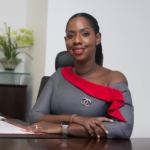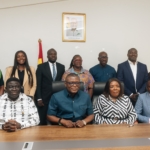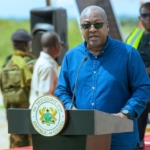
President John Mahama has announced that the government will soon roll out a pilot programme involving the private sector to revive broken-down small-town water systems currently under public management.
The initiative, which forms part of efforts to improve the delivery and management of basic utilities, will see selected private companies tasked with repairing and operating these small-town systems, distributing water, and handling bill collection.
President Mahama made the disclosure after cutting the sod for the construction of a 200-megawatt-peak (MWp) Solar for Industries Park Project, expected to become one of the largest solar installations in West Africa. The project aims to reach a capacity of 1,000 megawatts-peak (MWp) by 2032.
Explaining the rationale for the new approach, President Mahama said the success of private participation in electricity distribution demonstrates the potential for similar arrangements in the water sector.
“And I gave an example before, enclave Power buys bulk electricity from the power utilities and distributes it within the free zones at Enclave and has a 99% collection rate of bills. The lights are always on in the industrial enclave, so the industries there have a high ratio of power and don’t see blackouts the way other places do. So there’s something to be said for private sector participation in utilities, not only for electricity, but even for water.”
He added that the government would begin “a pilot where we have small-town water systems that are broken down, that are publicly administered, and we’re going to involve private sector companies to repair those small-town water systems, distribute the water, and be responsible for the bill collection.”
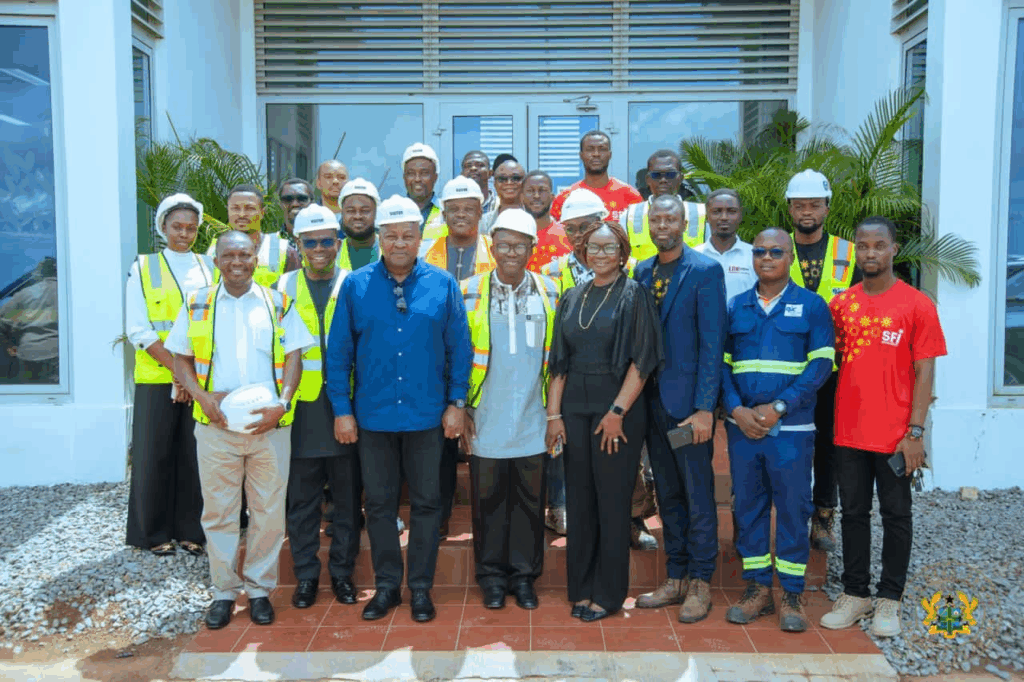
President Mahama explained that tariffs would still be regulated by the Public Utilities Regulatory Commission (PURC), ensuring affordability.
“After all, the PURC is the one that sets the tariffs and so these companies are not going to be able to set tariffs that are above what our people can afford to pay.”
The President said the pilot will be accompanied by broader efforts to improve efficiency in bill collection and power distribution.
“We’re also going to continue the efforts to inject the private sector in the bill collection and the last point of service of power distribution to customers, so that we can bring efficiency in collecting revenues in order that we can pay the power generators who are providing the electricity, including the private independent power producers. And so this is something that my government is intent on going forward with.”
President Mahama also outlined plans for a new Green Digital City project aimed at decongesting Accra. He revealed that feasibility studies and design work would begin by the end of this year, adding that the Minister of Finance has already made budgetary provisions to support the process.
The President described the project as a 20-year development plan to relocate some government agencies and critical offices from Accra to a newly developed city to ease growing traffic congestion and urban pressure in the capital.
“You must have heard me recently talk about a new green digital city, which we plan as a 20-year project to help decongest Accra. Accra will remain the capital, but we will move some of the government agencies and other critical offices out of Accra into the new city so that the kind of gridlock that is beginning to happen in Accra would ease.”
He added that the proposed city will be modern and environmentally friendly.
“This will be a new city that would attract investment, will attract tourism; it will be a smart city, it will have a modern drainage system, good sanitation, there will be no kiosks and containers in that city, and people will not be walking by the roadside in that city. If you want to sell anything, you sell in the market that is provided in the city.”
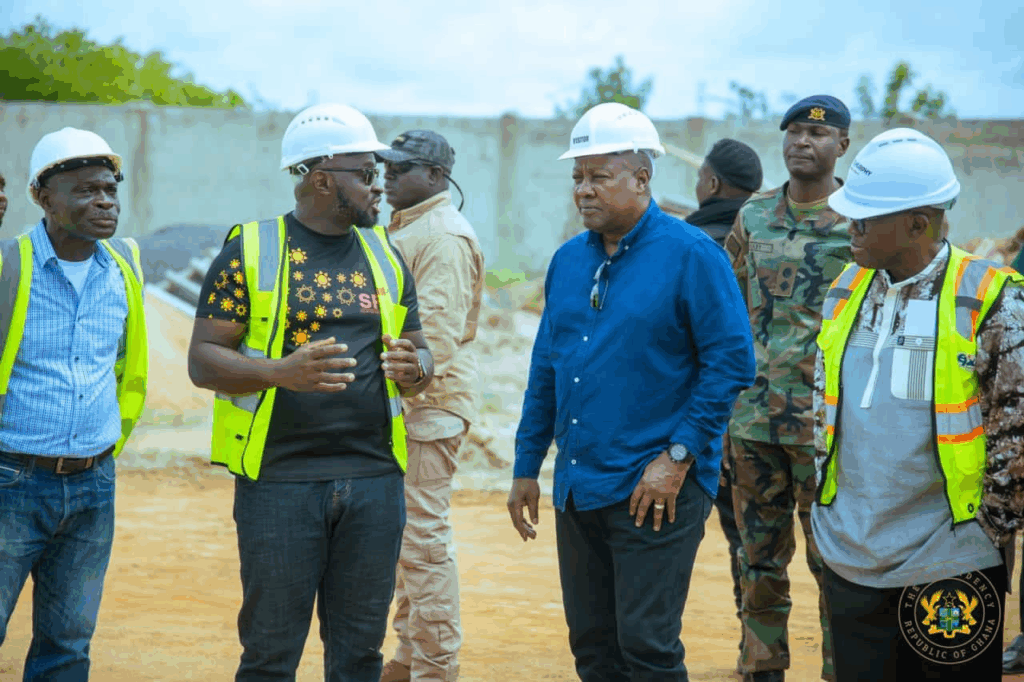
President Mahama explained that the Green Digital City will integrate industrial, residential, commercial, and financial enclaves, stretching from the Dawa Industrial Park through the Saglemi housing area into parts of the Volta and Eastern Regions.
“Everything that is happening here is being integrated into the green digital city that we have envisioned for our dear nation, Ghana.
“The feasibility study and the design for this city will begin by the end of this year and the Minister of Finance is already making budgetary provision for the designs and feasibility studies,” he added.
Meanwhile, President Mahama has donated relief items on behalf of Ghana to victims of the ongoing war in Sudan, and to those affected by Hurricane Melissa in Jamaica and Cuba.
He said the gesture reflects Ghana’s long-standing tradition of solidarity and compassion.
“Ghana has a tradition of solidarity and compassion. And so in addition to what he referred to with Guinea and Congo, we also extended assistance to Japan by shipping cocoa products to Japan when they had the tsunami at that time.
“And so there’s another gesture three countries are going to benefit: Jamaica, which is the hardest hit, and then Cuba, but also our colleagues in Sudan.”
President Mahama expressed concern that global attention has shifted away from the humanitarian crisis in Sudan due to other ongoing conflicts.
“Sudan is virtually becoming the forgotten world, because of Ukraine and Gaza, it looks like the world’s attention has shifted there. And so some of the atrocities, the genocide, and the humanitarian suffering that is taking place in Sudan is not something that belongs to the 21st century.”
He added that while Ghana’s contribution may not resolve the crisis, it represents a show of solidarity and collective responsibility.
“Even though Ghana’s contribution would not resolve the humanitarian suffering that is going on, we believe that if every country contributes its quota, we can help to alleviate what is happening in these places.”

